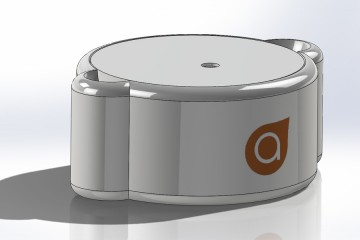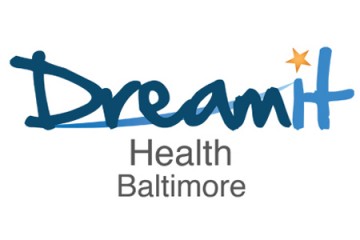Nine startups that spent the past 16 weeks working on innovative health-related information technology projects as part of the DreamIt Health Baltimore accelerator program will present their ideas to an audience of investors and industry leaders Wednesday at Johns Hopkins Hospital in East Baltimore.
The DreamIt Demo Day, which begins at 11 a.m. at the hospital's Sheikh Zayed Tower auditorium, is a showcase for the companies, giving them an opportunity to briefly share their progress and future plans. The presentations will be broadcast live on the Johns Hopkins Ustream channel.
The innovations that will be presented include a device that enables physicians to monitor patients' vital signs and manage their care from afar, an app that helps people gradually overcome their phobias, and software that protects patient privacy.
"Demo Day is our capstone event, giving our portfolio companies a platform from which to share their stories, accomplishments to date, and their road map for the future before a select audience of potential investors, partners, and customers," said Elliot Menschik, managing partner of DreamIt Health.
The DreamIt Baltimore cohort began in mid-January, and teams have been working in office space in Baltimore's Fell's Point neighborhood. Their charge: Meet pressing needs for innovative health-related information technology.
Over the past four months, the companies received access to key individuals and resources at Johns Hopkins University and Johns Hopkins Medicine, Northrop Grumman, and Kaiser Permanente that helped them hone their solutions and develop relationships critical for launching their products.
The startups include:
Aegle, which is developing a wearable device that measures multiple vital signs from a single location
Avhana Health, which aims to complement existing electronic medical records by extracting patient information and creating an adaptive checklist to guide care
Cognuse, which helps stroke and brain injury patients recover faster through mobile tests, rehabilitation plans, and games
emocha, a mobile health platform for remote patient management that improves patient adherence with prescribed regimens
Protenus, which aims to help hospitals protect patient privacy by detecting and preventing data breaches
Respi, which is developing a mobile spirometer and data management platform to bring the promise of personalized medicine to millions of respiratory disease patients
PatientFeed, a mobile application that enables teams of physicians to coordinate patient care, saving time and reducing medical errors
Phobious, which helps people overcome their fears and anxieties through virtual and augmented reality on mobile devices
Quantified Care, which helps medical professionals adopt and get the most out of the exploding number of mobile medical devices from EKGs to ophthalmoscopes
DreamIt Ventures and its partners selected the companies that took part in the program based on the strength of their founding teams, the market potential of their projects, and their progress prior to entering the program. Startups selected to participate in DreamIt Health programs received $50,000 in seed funding, coaching from former DreamIt entrepreneurs and industry leaders, access to key people and resources in their industries, and donated counsel from four of the region's leading law firms.
Posted in Health, Science+Technology
Tagged entrepreneurship









